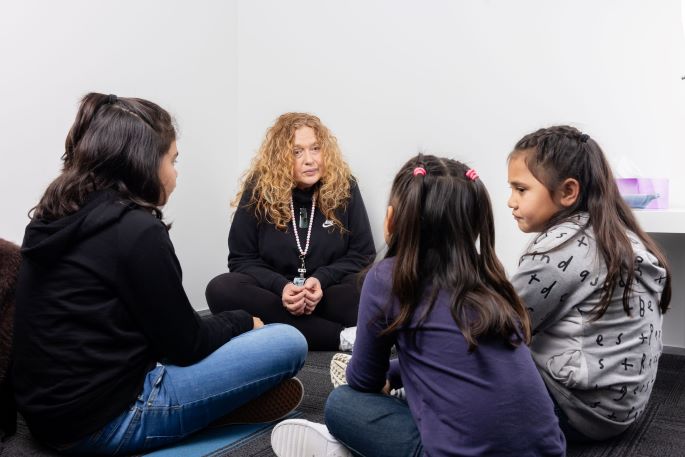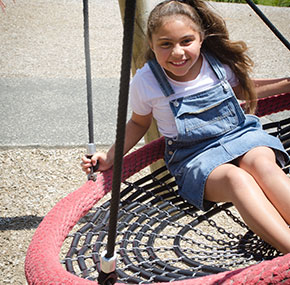Even if you haven’t been directly affected, the recent floods have given us all a bit of a jolt. Graphic images of raging floodwaters, upturned vehicles, collapsed houses, roads and bridges that have simply disappeared provide a ready mental backdrop to some of the harrowing accounts of the damage caused by the weather.
Just hearing about the flooding can leave children, who are that much more open and impressionable than adults, feeling anxious.
Children who experienced the flooding first-hand could have flashbacks, nightmares or night terrors, unwanted negative thoughts, and be left so on edge that even light rainfall can be interpreted as dangerous or a threat.
As a parent, how can you help your children make sense of it all?
FamilyWorks Practice Lead Ian Tomkins says there are a few simple things parents can do to help.
The first is to be aware of your own anxiety. If you are anxious, it shows and your children are going to pick up on it.
“Parents need to self-regulate that anxiety and get support. Ask yourself ‘what support do I need so that I am able to model calmness without being in denial?’ and get that support so you don’t unconsciously feed your children’s anxiety.
“If you, as a parent, pick up on a child’s anxiety, it’s really important for you to notice and acknowledge it by saying things along the lines of ‘Because we experienced the floods, we are now worried when it rains.’
“Don’t deny it or pretend that worries aren’t being felt. Validating children’s feelings is important. It’s sometimes easy to think that talking about such worries will make things worse. However, if children are able to talk about their worries and are acknowledged and understood, it’s supportive and helpful.
“If your child becomes clingy or is afraid to be away from you or a favourite toy, it’s important for them to know that wherever they are, and no matter what’s going on, they are always cared for,” says Ian Tomkins.
Another thing that really helps is keeping to the family’s usual routine – like having meals at the same time and going to school so children have some sort of familiar structure.
If children are starting to feel triggered, anxious or apprehensive when it starts to rain, it’s really good to remind them that they are OK now.
Mindfulness techniques can also help children feel more grounded, for example, breathing exercises, counting backwards from 20 or longer for older children possibly in their second language if they are able to and colouring in.
If your child continues to struggle to ward off worries or feel anxious, or their concerning behaviour worsens, get professional help. People are welcome to contact their local Family Works centre (covering Taupō to Whangarei) by clicking here.
Family Works works with children and young people experiencing anxiety, wellbeing challenges and trauma and also supports the wider whānau through a range of social work and counselling interventions. This might include advocacy to address food insecurity or housing safety as well building resilience and addressing physical and psychological safety.
Family Works Northern works closely with a number of other community agencies, health services and government departments.








